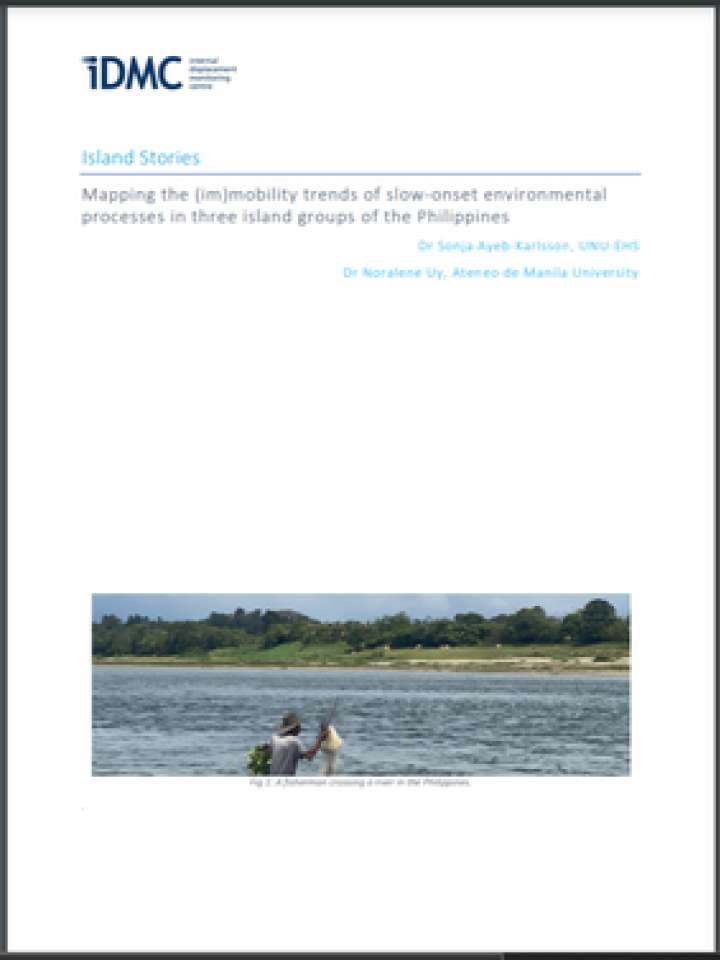Island stories: Mapping the (im)mobility trends of slow-onset environmental processes in three island groups of the Philippines
This study applies a storytelling approach considering psycho-social subjectivity to map out slow onset-induced (im)mobility trends in the Philippines. The Philippines has frequently been pointed out as one of the countries at the most risk of global environmental changes. Most research on human mobility in the Philippines has until now focussed on sudden-onset environmental shocks such as typhoons, with very limited studies investigating slow onset events. The assumption is often that people will prepare and respond to climatic impacts if they obtain the means. However, individual behaviour is deeply influenced by subjective, cultural and social values. It is therefore vital to gain deeper insights into the local perceptions that surround human (im)mobility.
The study found that migration experiences when successful provided people with social and economic opportunities that improved their quality of life. However, those moving, as well as those left behind, could also find themselves in vulnerable positions. Migrants often settled down in poor and marginalised areas of cities or were exploited abroad due to the lack of labour and social protection laws. Households facing extended periods of slow-onset environmental stress, eroded their financial and social assets, and decreased their likelihood of positive migration experiences. Desperation, often due to extensive financial losses, debt or social tension, forced people to settle down in risker places and accept riskier working and living arrangements. Similarly, those left behind in more precarious circumstances tended to face more difficulties due to lacking remittances, abandonment or stress related to unpaid debts or social tension.
Explore further
